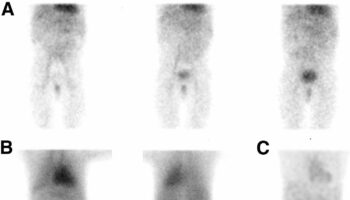Contents
What is anastrozole
Anastrozole is an nonsteroidal aromatase inhibitor that works by decreasing the amount of estrogen the body makes in postmenopausal women, which may slow the growth of certain types of breast tumors that need estrogen to grow in the body. Anastrozole is used with other treatments, such as surgery or radiation, to treat breast cancer in postmenopausal women. Anastrozole is often given to women whose cancer has progressed even after taking tamoxifen (Nolvadex, Soltamox). Anastrozole is also used in postmenopausal women, as a first treatment of breast cancer that has spread within the breast or to other areas of the body. Anastrozole is available only with your doctor’s prescription.
Anastrozole is a nonsteroidal inhibitor of aromatase, the enzyme responsible for the conversion of testosterone to estrone (E1) and of androstenedione to estradiol (E2). Highest levels of aromatase are found in the ovary and placenta, which are the major sources of estrogen in premenopausal women. However, aromatase is also found in other tissues, such as liver, kidney, adrenals, brain, muscle and subcutaneous fat where it is also active in producing estrogens, although at low levels. These tissues are the major source of estrogen in postmenopausal women. Inhibitors of aromatase were developed to block the synthesis of estrogen in the peripheral tissues and thus, as antiestrogen therapy of estrogen receptor positive breast cancer in postmenopausal women. The aromatase inhibitors in current use include letrozole, exemestane and anastrozole. Anastrozole is a nonsteroidal, specific aromatase inhibitor which has little or no effect on adrenal glucocorticoid or mineralocorticoid synthesis. Anastrozole was approved for use in postmenopausal women with breast cancer in the United States in 1995. Anastrozole is available in 1 mg tablets in generic forms and under the brand name Arimidex. Its current indications are as adjuvant therapy in postmenopausal women with hormone responsive breast cancer, as first line therapy of locally invasive or metastatic estrogen receptor positive breast cancer in postmenopausal women, and as adjuvant therapy in postmenopausal women with advanced breast cancer not responsive to tamoxifen.
Anastrozole comes as a tablet to take by mouth. Anastrozole is typically given in single oral doses of 1 mg daily for up to five years. But you may need to take anastrozole for several years or longer. Anastrozole is usually taken once a day with or without food. Take anastrozole at around the same time every day. Follow the directions on your prescription label carefully, and ask your doctor or pharmacist to explain any part you do not understand. Take anastrozole exactly as directed. Do not take more or less of it or take it more often than prescribed by your doctor. Continue to take anastrozole even if you feel well. Do not stop taking anastrozole without talking to your doctor.
Common anastrozole side effects include hot flashes, night sweats, fatigue, dizziness, headache, somnolence, abdominal discomfort, nausea, arthralgias, weight gain and rash. Uncommon, but potentially severe side effects of anastrozole include decrease in bone mineral density, increase in serum cholesterol and increased rate of cardiovascular events.
What is anastrozole used for?
Anastrozole is used to treat early estrogen receptor-positive (or ER+) breast cancer. Anastrozole is also used for first-line treatment of estrogen receptor-positive or estrogen receptor-unknown advanced or metastatic (cancer that has spread) breast cancer. Anastrozole is also used to treat advanced breast cancer that has grown or spread after tamoxifen treatment. Anastrozole is used only in women who have already stopped menstruating (postmenopausal).
Many breast cancer tumors grow in response to estrogen. Anastrozole interferes with the production of estrogen in the body. As a result, the amount of estrogen that the tumor is exposed to is reduced, limiting the growth of the tumor.
Anastrozole is also sometimes used to prevent breast cancer in women who are at high risk of developing the disease. Talk to your doctor about the risks of using anastrozole for your condition.
Anastrozole special precautions
It is very important that your doctor check your progress at regular visits to make sure that anastrozole is working properly. Blood tests may be needed to check for unwanted effects.
It is unlikely that a postmenopausal woman may become pregnant. But, you should know that using anastrozole while you are pregnant could harm your unborn baby. Use an effective form of birth control during treatment with anastrozole and for at least 3 weeks after the last dose. If you think you have become pregnant while using anastrozole, tell your doctor right away.
Do not use anastrozole together with tamoxifen (Nolvadex®, Soltamox®).
This medicine may cause serious allergic reactions, including anaphylaxis and angioedema, which can be life-threatening and require immediate medical attention. Call your doctor right away if you have itching, hives, hoarseness, trouble breathing or swallowing, or any swelling of your hands, face, or mouth while you are using anastrozole.
Check with your doctor right away if you start having chest pains or difficulty with breathing. This medicine may increase the chance of heart problems, including heart attack, in women who have a history of ischemic heart disease.
This medicine may decrease bone mineral density when used for a long time. A low bone mineral density can cause weak bones or osteoporosis. If you have any questions about this, talk to your doctor.
This medicine may increase your cholesterol or fat in the blood. If this happens, your doctor may give you medicine to lower the cholesterol and fat.
Do not take other medicines unless they have been discussed with your doctor. This includes prescription or nonprescription (over-the-counter [OTC]) medicines for appetite control, asthma, colds, cough, hay fever, or sinus problems, and herbal or vitamin supplements.
Before taking anastrozole:
- tell your doctor and pharmacist if you are allergic to anastrozole, or any other medications, or any of the ingredients in anastrozole. Ask your pharmacist for a list of the ingredients.
- tell your doctor and pharmacist what other prescription and nonprescription medications, vitamins, nutritional supplements, and herbal products you are taking or plan to take. Be sure to mention any of the following: medications that contain estrogen such as hormone replacement therapy (HRT) and hormonal contraceptives (birth control pills, patches, rings, and injections); raloxifene (Evista); and tamoxifen (Nolvadex). Your doctor may need to change the doses of your medications or monitor you carefully for side effects.
- tell your doctor if you have or have ever had high cholesterol, osteoporosis (condition in which the bones are fragile and break easily), liver, or heart disease.
- you should know that anastrozole should only be taken by women who have undergone menopause and cannot become pregnant. However, if you are pregnant or breast-feeding, you should tell your doctor before you begin taking this medication. Anastrozole may harm the fetus.
- Safety and efficacy of anastrozole have not been established in patients younger than 18 years.
- Premenopausal women (still having menstrual cycles)— Anastrozole should not be used in these patients.
Anastrozole interactions
Although certain medicines should not be used together at all, in other cases two different medicines may be used together even if an interaction might occur. In these cases, your doctor may want to change the dose, or other precautions may be necessary. Tell your healthcare professional if you are taking any other prescription or nonprescription (over-the-counter [OTC]) medicine.
Other interactions
Certain medicines should not be used at or around the time of eating food or eating certain types of food since interactions may occur. Using alcohol or tobacco with certain medicines may also cause interactions to occur. Discuss with your healthcare professional the use of your medicine with food, alcohol, or tobacco.
Other medical problems
The presence of other medical problems may affect the use of this medicine. Make sure you tell your doctor if you have any other medical problems, especially:
- Bone problems (e.g., osteoporosis) or
- Hypercholesterolemia (high cholesterol or fat in the blood) or
- Ischemic heart disease (e.g., heart attack, angina), history of, or
- Liver disease—Use with caution. May make these conditions worse.
Anastrozole dosage
Take anastrozole only as directed by your doctor. Do not take more of it, do not take it more often, and do not take it for a longer time than your doctor ordered. To do so may increase the chance for side effects.
Anastrozole comes with a patient information leaflet. Read and follow these instructions carefully. Ask your doctor if you have any questions.
You may take anastrozole with or without food.
Anastrozole sometimes causes nausea, vomiting, or diarrhea. However, it is very important that you continue to use the medicine, even if you begin to feel ill. Ask your doctor for ways to prevent these effects or make them less severe.
The dose of this medicine will be different for different patients. Follow your doctor’s orders or the directions on the label. The following information includes only the average doses of this medicine. If your dose is different, do not change it unless your doctor tells you to do so.
The amount of medicine that you take depends on the strength of the medicine. Also, the number of doses you take each day, the time allowed between doses, and the length of time you take the medicine depend on the medical problem for which you are using the medicine.
- For oral dosage form (tablets):
- For breast cancer:
- Adults—1 milligram (mg) once a day.
- Children—Use and dose must be determined by your doctor.
Adult dose for breast cancer
- Initial dose: 1 mg orally taken once a day
- Duration of therapy: Until tumor progression (treatment of advanced breast cancer); unknown (adjuvant treatment of early breast cancer)
Uses:
- Adjuvant treatment of postmenopausal women with hormone receptor-positive early breast cancer;
- First-line treatment of postmenopausal women with hormone receptor-positive or hormone receptor unknown locally advanced or metastatic breast cancer;
- Second-line treatment of advanced breast cancer in postmenopausal women with disease progression following tamoxifen therapy.
Renal dose adjustments
- No adjustment recommended.
Dialysis
- Data not available.
Liver dose adjustments
- Mild to Moderate Hepatic Impairment: No adjustment recommended.
- Stable Hepatic Cirrhosis: No adjustment recommended.
- Severe Hepatic Impairment: Data not available.
What should I do if I forget a dose?
Take the missed dose as soon as you remember it. However, if it is almost time for the next dose, skip the missed dose and continue your regular dosing schedule. Do not take a double dose to make up for a missed one.
Anastrozole side effects
Anastrozole may cause side effects. Tell your doctor if any of these symptoms are severe or do not go away:
- weakness
- headache
- hot flashes
- sweating
- stomach pain
- nausea
- vomiting
- loss of appetite
- constipation
- diarrhea
- heartburn
- weight gain
- joint, bone, or muscle pain
- breast pain
- mood changes
- depression
- difficulty falling asleep or staying asleep
- nervousness
- dizziness
- vaginal bleeding
- vaginal dryness or irritation
- pain, burning, or tingling in the hands or feet
- dry mouth
- hair thinning
Some side effects can be serious. If you experience any of these symptoms, call your doctor immediately:
- chest pain
- sore throat, cough, fever, chills, swollen glands, or other signs of infection
- swelling, redness, or warmth in hand or arm
- difficult, painful, or urgent urination
- blurred vision or vision changes
- yellowing of the skin or eyes
- pain in the upper right part of the stomach
- skin lesions, ulcers, or blisters
- rash
- hives
- itching
- shortness of breath
- difficulty swallowing or breathing
- swelling of the eyes, face, lips, tongue, throat, arms, hands, feet, ankles, or lower legs
Anastrozole may cause or worsen osteoporosis. It can decrease the density of your bones and increase the chance of broken bones and fractures. Talk to your doctor about the risks of taking this medication and to find out what you can do to decrease these risks.
Anastrozole more common side effects:
- blurred vision
- bone pain
- chest pain or discomfort
- dizziness
- headache
- nervousness
- pounding in the ears
- slow or fast heartbeat
- swelling of the feet or lower legs
Anastrozole less common side effects:
- arm, back, or jaw pain
- chest tightness or heaviness
- chills
- cough
- cough producing mucus
- difficult or painful urination
- difficulty breathing
- dizziness, severe
- fever
- headache, continuing
- hoarseness
- increased blood pressure
- lower back or side pain
- nausea
- pain, tenderness, bluish color, or swelling of the foot or leg
- sore throat
- sweating
- unusual drowsiness, dullness, tiredness, weakness, or feeling of sluggishness
- vaginal bleeding (unexpected and heavy)
Incidence not known:
- blistering, peeling, or loosening of the skin
- confusion
- constipation
- dark urine
- depression
- diarrhea
- difficulty swallowing
- dry mouth
- general tiredness and weakness
- hives or welts, itching, skin rash
- incoherent speech
- increased urination
- joint or muscle pain
- large, hive-like swelling on the face, eyelids, lips, tongue, throat, hands, legs, feet, or genitals
- light-colored stools
- loss of appetite
- metallic taste
- muscle weakness
- puffiness or swelling of the eyelids or around the eyes, face, lips, or tongue
- red skin lesions, often with a purple center
- red, irritated eyes
- sores, ulcers, or white spots in the mouth or on the lips
- stomach pain
- thirst
- upper right abdominal pain
- vomiting
- weight loss
- yellow eyes and skin
Anastrozole may cause other side effects. Call your doctor if you have any unusual problems while taking anastrozole.





